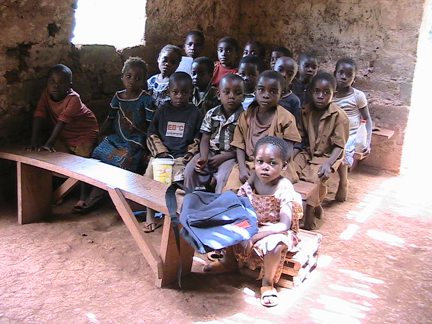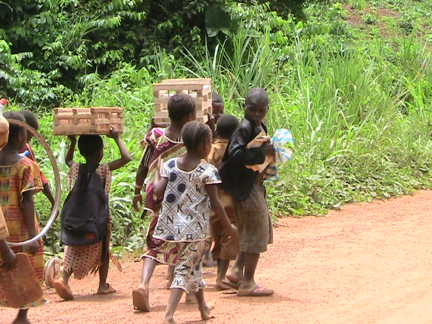Agriculture

The Challenges in the Community
Ibrahim’s father owns four farms but he still couldn’t afford a wheelchair for his son, who is a polio survivor. Why? Because he sells his crops through an unfair market system that keeps villagers like him at a disadvantage. This situation is the result, in part, of a lack of locally organized agricultural cooperatives.
The Tikar and the Bedzan Pygmy have been small-scale farmers for many generations. Agriculture is the most sustainable and important activity in their daily lives where women are the backbone of this culture. They have maintained a deep agricultural tradition despite previous and current incursions into their homeland that have threatened to destabilize their way of life.
These indigenous farmers cultivate a wide variety of organic products, from domestic and wild local plants to animals, grains, seeds, and fish.
Coffee and cocoa are the main seasonal crops that can only be harvested and sold once a year. Additional agricultural products include about 45 other plants, cereals, fruits, insects and livestock that locals hunt or grow mostly for their own consumption or for sale to local, informal markets.
The unrealistic agricultural policy and the massive logging by corporations in the region are destroying biodiversity and damaging the already fragile ecosystem in the Tikar region.
Beyond the unchecked deforestation that is encroaching on the lands of this isolated community, there is also a risk of extinction of unique native traditions of animal husbandry, farming, cooking of the region. HITIP founder Issa Nyaphaga explains, "I'm afraid that the collateral damage on language, art, and culture of the Tikar and Bedzan Pygmy may be irreversible."

